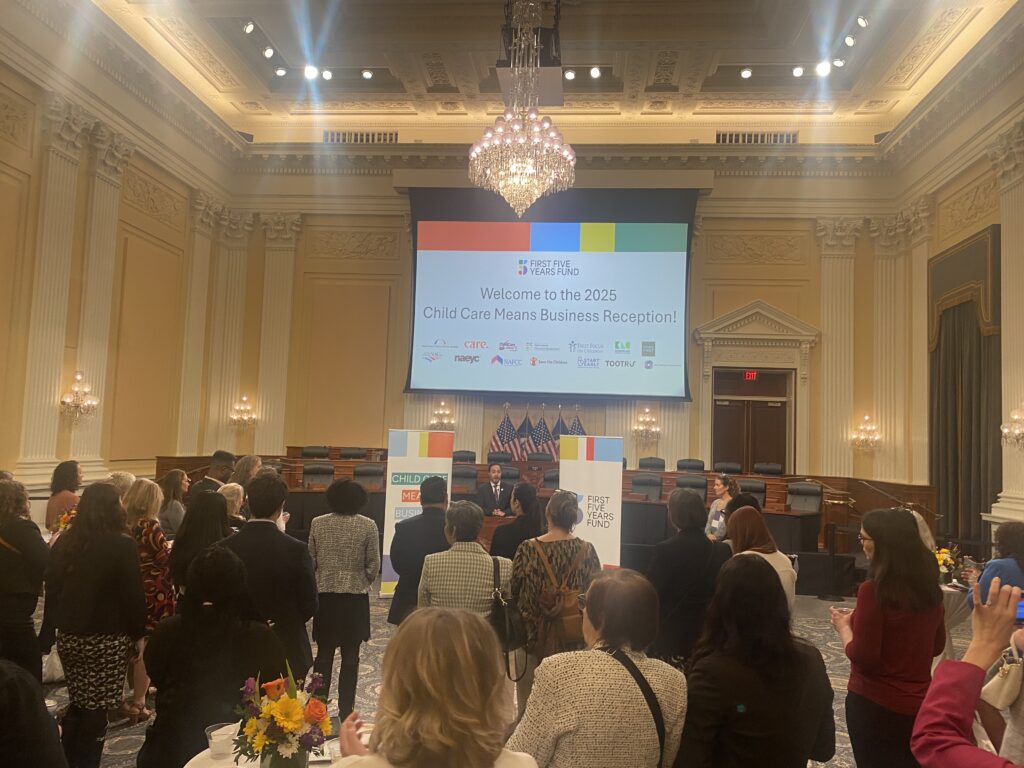Highlights from Senate Appropriations hearing on White House FY24 request

On Wednesday, November 8, the Senate Appropriations Committee held a hearing to discuss President Biden’s FY24 supplemental funding request. As part of the three-hour hearing, Homeland Security Secretary Alejandro Mayorkas and Health and Human Services Secretary Xavier Becerra elaborated on the ongoing need for supplemental funding for their agencies, with most questions focusing on immigration and child care.
Throughout the hearing, committee members on both sides of the aisle highlighted the need to address the tremendous child care challenges facing working families in communities across the country. They underscored the connection between child care access and a thriving U.S. economy. And while members differed on approaches, they agreed Congress must take federal action and work towards solutions.
Yesterday’s hearing showcases again that addressing the child care crisis is a shared concern across party lines. In the coming weeks, as the House and the Senate engage in year-end federal funding conversations, Congress has the opportunity to prioritize, protect, and build on the programs that make child care more affordable and more accessible to working families.
Below are relevant quotes from the hearing.
In her opening remarks, Appropriations Committee Chairwoman Patty Murray (D-WA) applauded the Biden administration for continuing to prioritize child care and early learning in its agenda. She highlighted the economic imperative of ensuring child care access for families, noting “you can’t have an economy that works for working families without a strong child care system, and right now our child care system is just plain broken… Right now, tens of thousands of Americans are being forced to miss work because they can’t get child care, which hurts businesses and hurts our entire economy.” She emphasized the need for working with colleagues across the aisle to address this issue.
In his testimony, Secretary Becerra reiterated the economic imperative of ensuring access to quality, affordable care, noting that failure to ensure adequate federal investment “threatens to drive providers out of business, increase parent fees, or both. For families this would mean higher out-of-pocket costs, fewer options for care, and more women leaving the workforce… If we don’t give child care providers – mostly small businesses – the support they need to serve their communities, working families across the country will suffer the consequences.”
During the Q&A portion of the hearing, Appropriations Committee Ranking Member Susan Collins (R-ME) affirmed her long-time commitment to early learning, noting “I’ve long been a strong supporter of improving access to quality, affordable child care.. I’ve focused on expanding the Child Care Development Block Grant (CCDBG) program – we increased funding last year by 30% and this year we’ve increased funding by another 9%.” Secretary Becerra agreed that long-term solutions are necessary, in addition to more immediate assistance to the sector.
Senator Jack Reed (D-RI) spoke about the vast need in his home state, noting “we learned during the pandemic that child care was essential to get to work… a local organization calculated that child care is unaffordable for 90% fo families, meaning that it costs more than 7% of total income. Meanwhile, child care workers are paid about $13 an hour, which is not exactly extravagant.” Secretary Becerra concurred, noting that federal investment is necessary “to save not just those families, but our economy.”
Senator Deb Fischer (R-NE) noted that CCDBG “is a bipartisan program with a storied history that should be supported and improved,” and that no member of the committee wishes to see “higher out-of-pocket costs, fewer options for care, [and] more women leaving the workforce.” Secretary Becerra reiterated the urgent need for families to receive affordable care and the need for federal investments.
Senator Jeff Merkeley (D-OR) also referenced the needs of communities in his home state, noting that during “every single town hall this year the issue of child care comes up – they can’t find it, they can’t afford it… This comes up in the context of not just families that need child care but also for the businesses that are desperate for employees that are home because there is not affordable child care.” Secretary Becerra agreed, and added that federal investment would have a direct impact on thousands of children in Oregon and beyond.
Senator Tammy Baldwin (D-WI) spoke about the ripple effect of child care provider closures within communities, referencing the direct impact on Wisconsin families and businesses that has recently received a national spotlight. She emphasized that “child care is not just a problem for working moms,” but for all of the businesses which are subsequently impacted by a parent’s decision to withdraw from the workforce. Secretary Becerra noted that this is happening throughout the country, and that failure to have adequate federal investment will result in these stories repeating themselves.
Senator Gary Peters (D-MI) echoed the sentiments of fellow committee-members, noting that “affordable child care is a crisis,” and highlighted the impact to the economy of his home state of Michigan if parents continue to struggle to find child care. Finally, he added that investment in child care is an investment in the U.S. and our economy. Secretary Becerra agreed, noting that federal investment in the child care sector “means that we will see more small businesses stay in business because it is small business that is the driving force [in] the child care sector. It means that several million children will continue to have quality child care.”Full testimony and video of the hearing can be found here.
Subscribe to FFYF First Look
Every morning, FFYF reports on the latest child care & early learning news from across the country. Subscribe and take 5 minutes to know what's happening in early childhood education.



